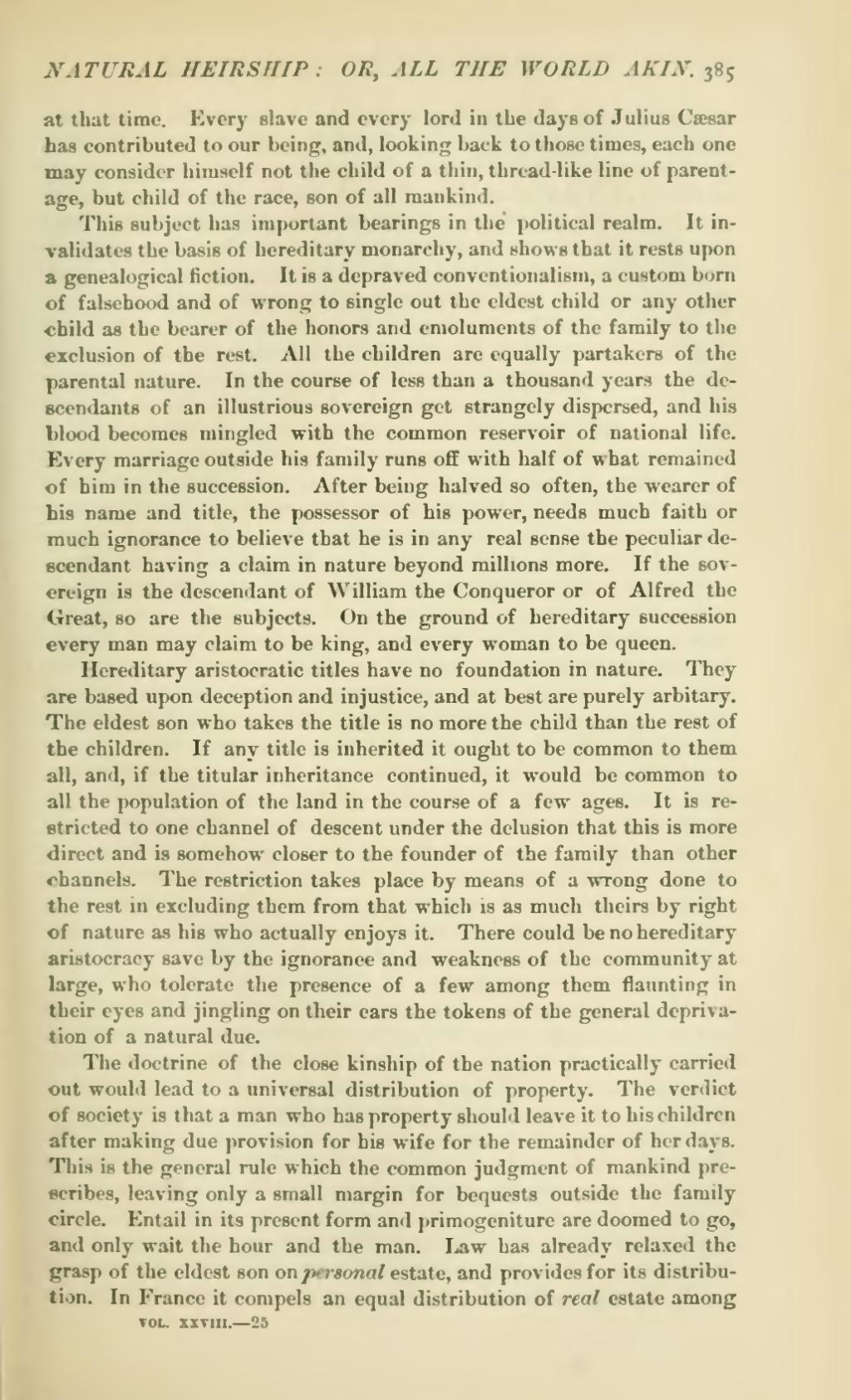at that time. Every slave and every lord in the days of Julius Cæsar has contributed to our being, and, looking back to those times, each one may consider himself not the child of a thin, thread-like line of parentage, but child of the race, son of all mankind.
This subject has important bearings in the political realm. It invalidates the basis of hereditary monarchy, and shows that it rests upon a genealogical fiction. It is a depraved conventionalism, a custom born of falsehood and of wrong to single out the eldest child or any other child as the bearer of the honors and emoluments of the family to the exclusion of the rest. All the children are equally partakers of the parental nature. In the course of less than a thousand years the descendants of an illustrious sovereign get strangely dispersed, and his blood becomes mingled with the common reservoir of national life. Every marriage outside his family runs off with half of what remained of him in the succession. After being halved so often, the wearer of his name and title, the possessor of his power, needs much faith or much ignorance to believe that he is in any real sense the peculiar descendant having a claim in nature beyond millions more. If the sovereign is the descendant of William the Conqueror or of Alfred the Great, so are the subjects. On the ground of hereditary succession every man may claim to be king, and every woman to be queen.
Hereditary aristocratic titles have no foundation in nature. They are based upon deception and injustice, and at best are purely arbitary. The eldest son who takes the title is no more the child than the rest of the children. If any title is inherited it ought to be common to them all, and, if the titular inheritance continued, it would be common to all the population of the land in the course of a few ages. It is restricted to one channel of descent under the delusion that this is more direct and is somehow closer to the founder of the family than other channels. The restriction takes place by means of a wrong done to the rest in excluding them from that which is as much theirs by right of nature as his who actually enjoys it. There could be no hereditary aristocracy save by the ignorance and weakness of the community at large, who tolerate the presence of a few among them flaunting in their eyes and jingling on their ears the tokens of the general deprivation of a natural due.
The doctrine of the close kinship of the nation practically carried out would lead to a universal distribution of property. The verdict of society is that a man who has property should leave it to his children after making due provision for his wife for the remainder of her days. This is the general rule which the common judgment of mankind prescribes, leaving only a small margin for bequests outside the family circle. Entail in its present form and primogeniture are doomed to go, and only wait the hour and the man. Law has already relaxed the grasp of the eldest son on personal estate, and provides for its distribution. In France it compels an equal distribution of real estate among

